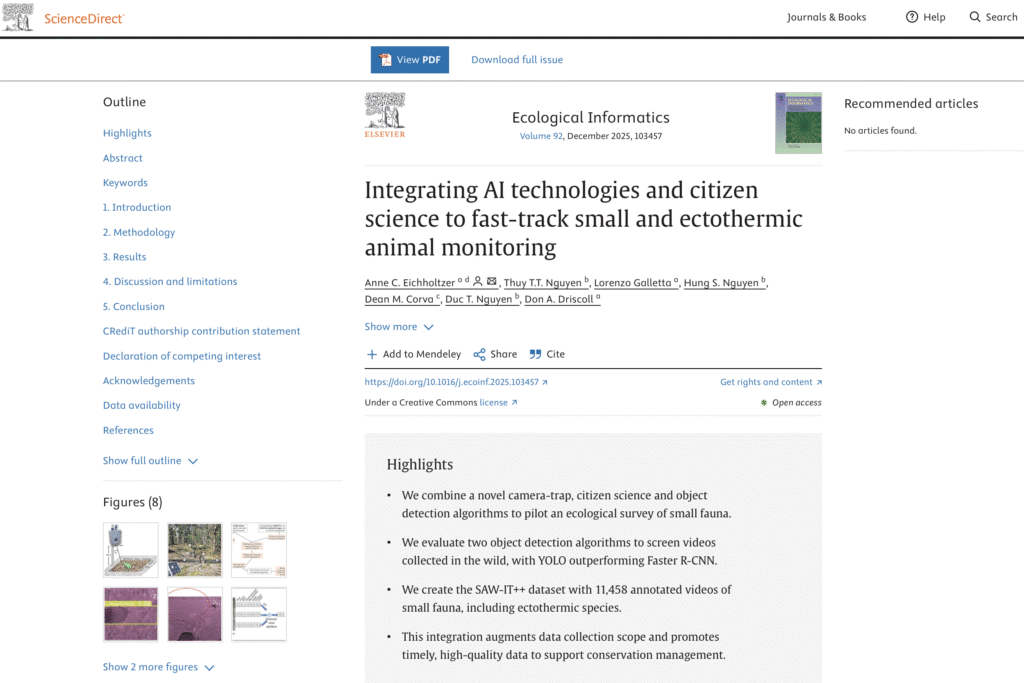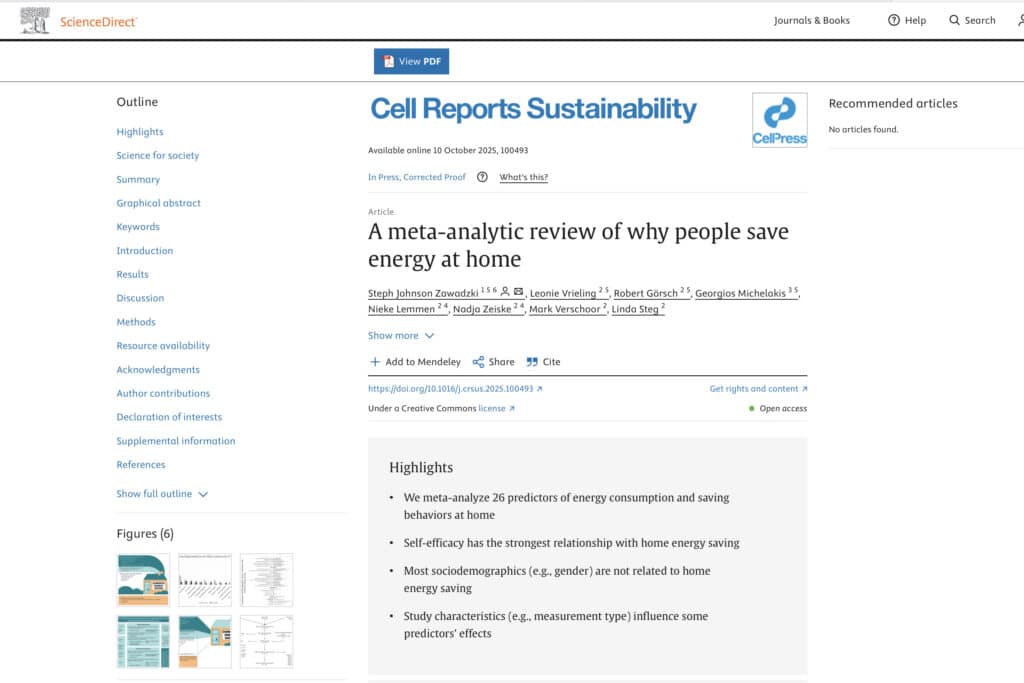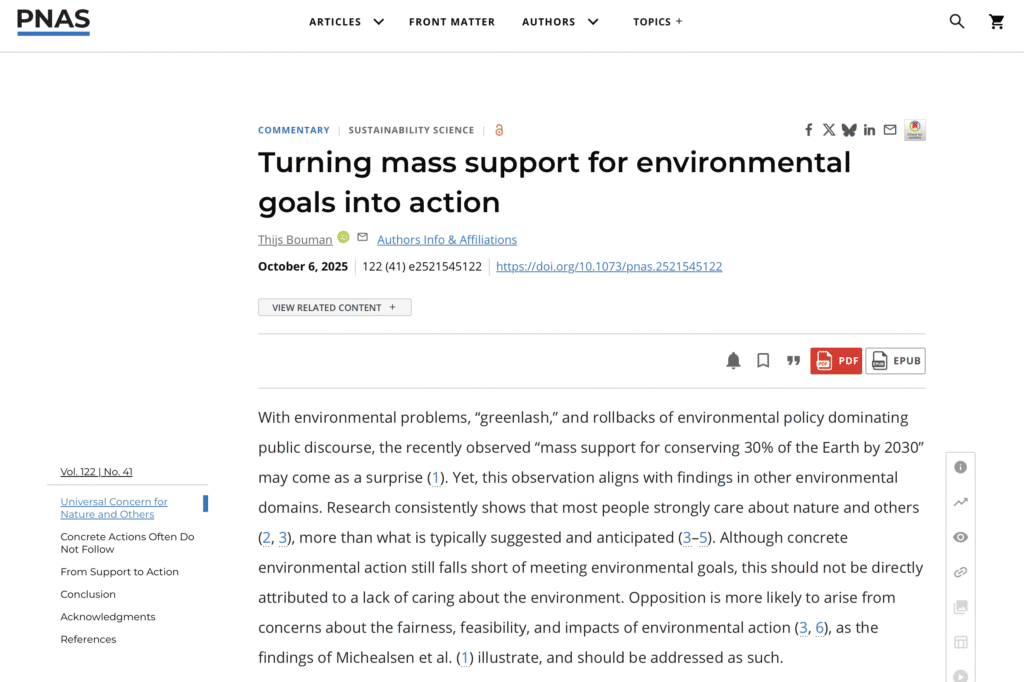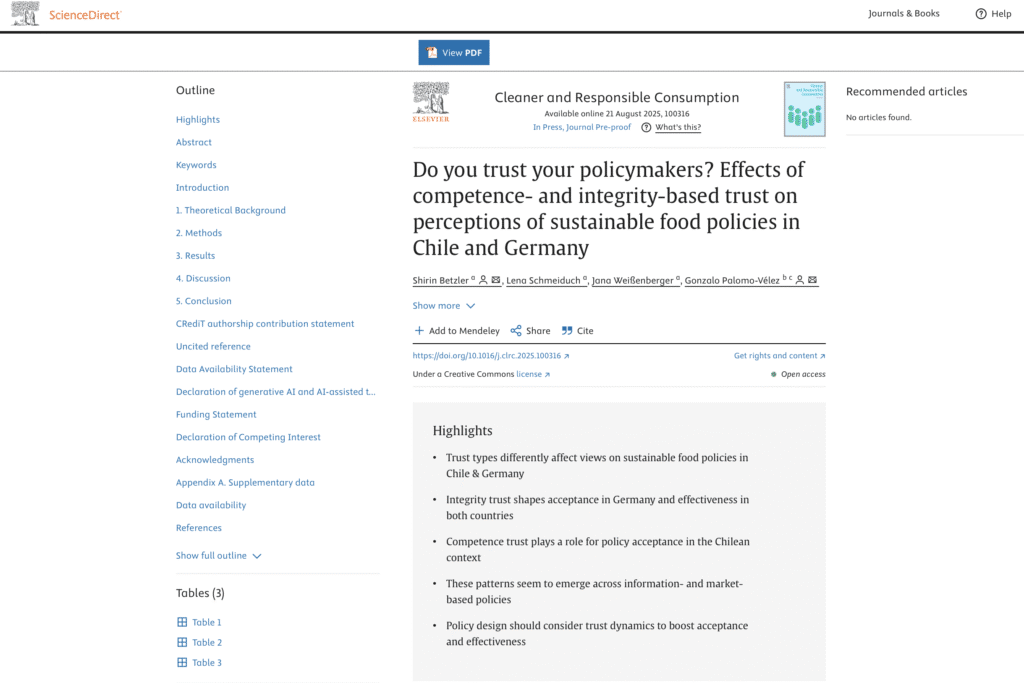How can psychology help us understand and solve environmental and energy-related problems?
Newsfeed

“The people at home want solutions”: most voters support strong climate policy
Political party leaders often claim their plans and policies represent what “the people" want, or at least reflect the opinion of the majority of their voters. Yet our colleagues professor Goda Perlaviciute, associate professor Thijs Bouman, and post doc Žan Mlakar say there is one topic that most voters support that politicians rarely campaign on: stronger climate policy.
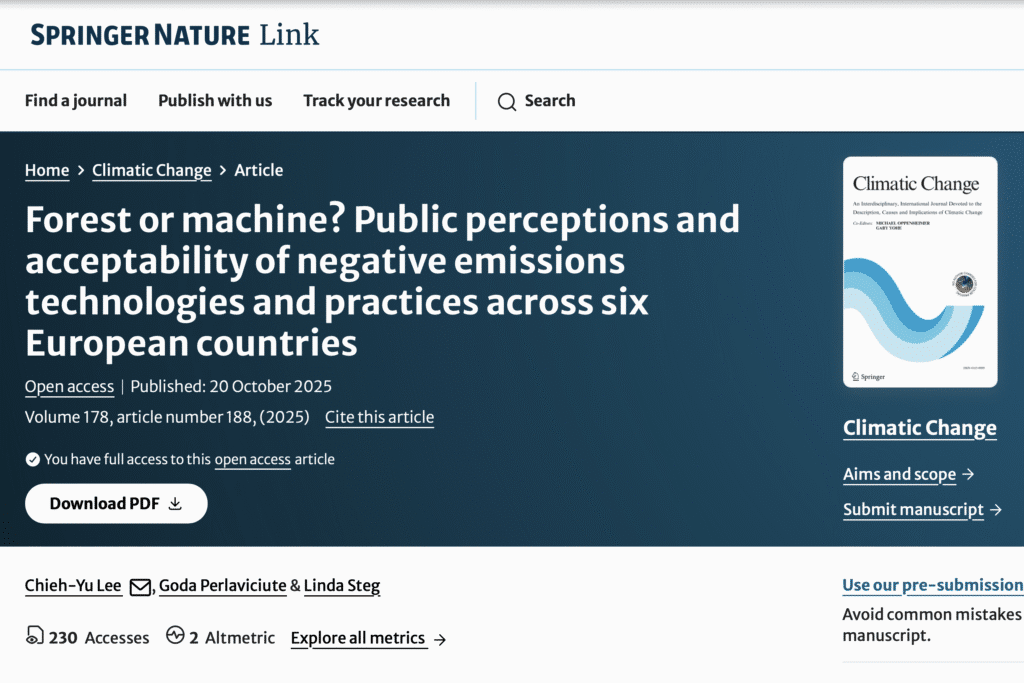
Forest or machine? Public perceptions and acceptability of negative emissions technologies and practices across six European countries
We conducted a large scale survey on NETPs in six EU countries (N = 5,310) to examine: (1) public preferences for NETPs, next to other mitigation options; (2) how people evaluate the environmental and intergenerational consequences and acceptability of nature-based (i.e., afforestation and reforestation; AR) and technology-based NETPs (i.e., direct air capture with carbon storage; DACCS); (3) the relationship between the evaluation of consequences and acceptability judgements of AR and DACCS; and (4) public preferences for AR and DACCS in general versus in their own country.
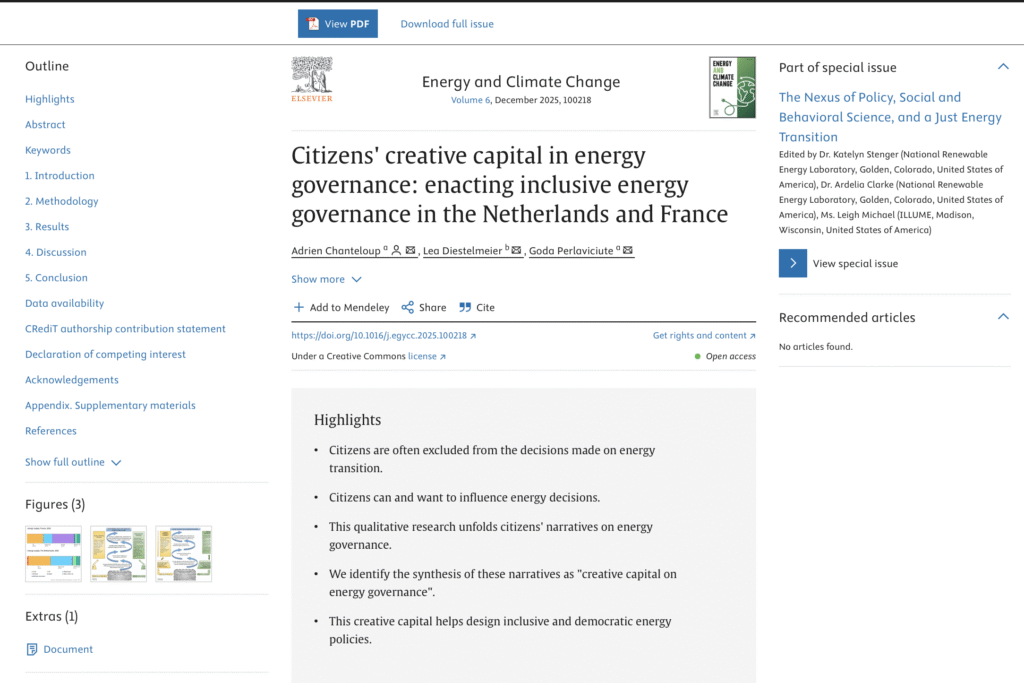
Citizens’ creative capital in energy governance: enacting inclusive energy governance in the Netherlands and France
We identify citizens’ “creative capital” for energy governance and argue that this brings added value for designing energy governance for a more socially, politically and environmentally sustainable energy system.
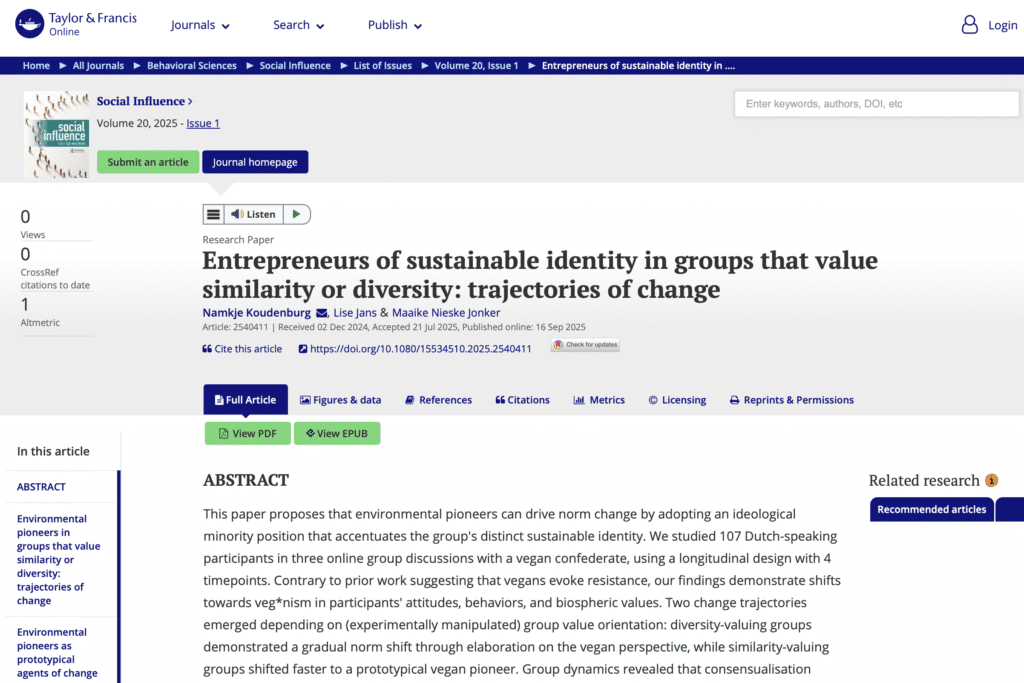
Entrepreneurs of sustainable identity in groups that value similarity or diversity: trajectories of change
Contrary to prior work suggesting that vegans evoke resistance, our findings demonstrate shifts towards veg*nism in participants' attitudes, behaviors, and biospheric values.
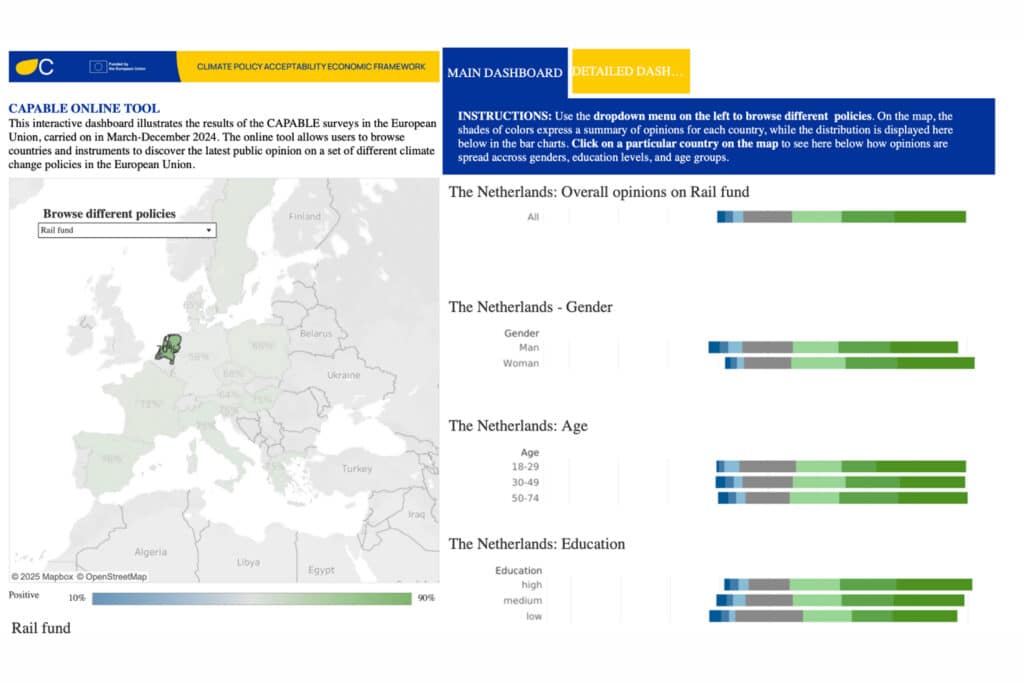
CAPABLE: new online tool shows which climate policies EU citizens like – and which ones they don’t
Europeans strongly prefer policies which allocate subsidies for rail transport or home insulation for instance, while they strongly oppose the ones which foresee any kind of tax on polluting behaviours, like cars and meat.
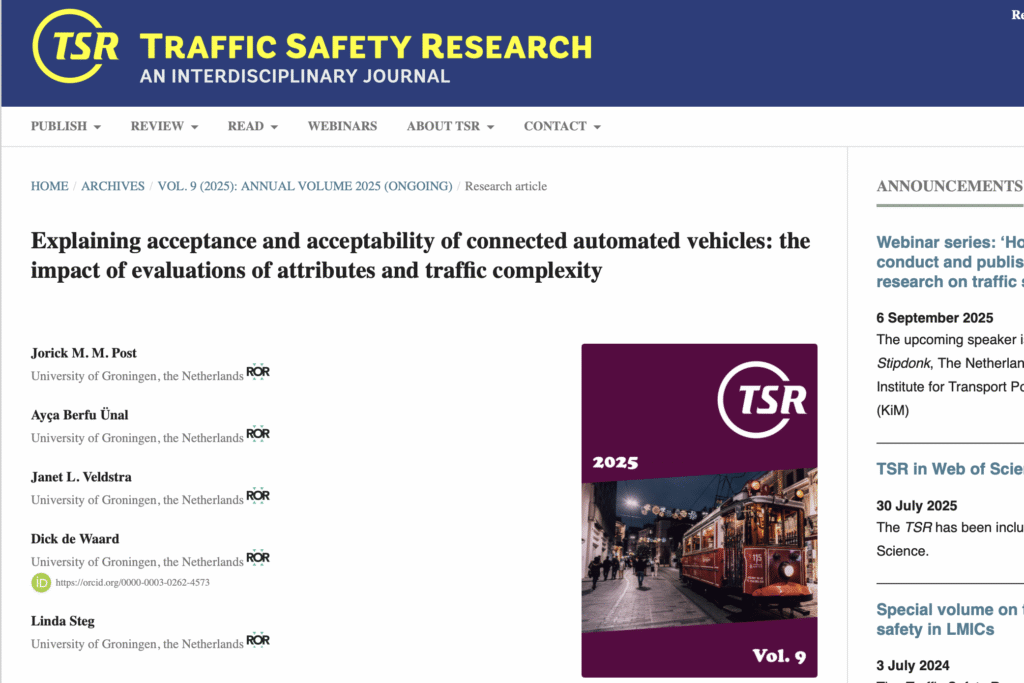
Explaining acceptance and acceptability of connected automated vehicles: the impact of evaluations of attributes and traffic complexity
Policies aimed at enhancing safety, driving pleasure, trustworthiness of Connected Automated Vehicles (CAVs), and by ensuring that CAVs are able to meet people’s mobility needs could increase both acceptability and acceptance of CAVs.
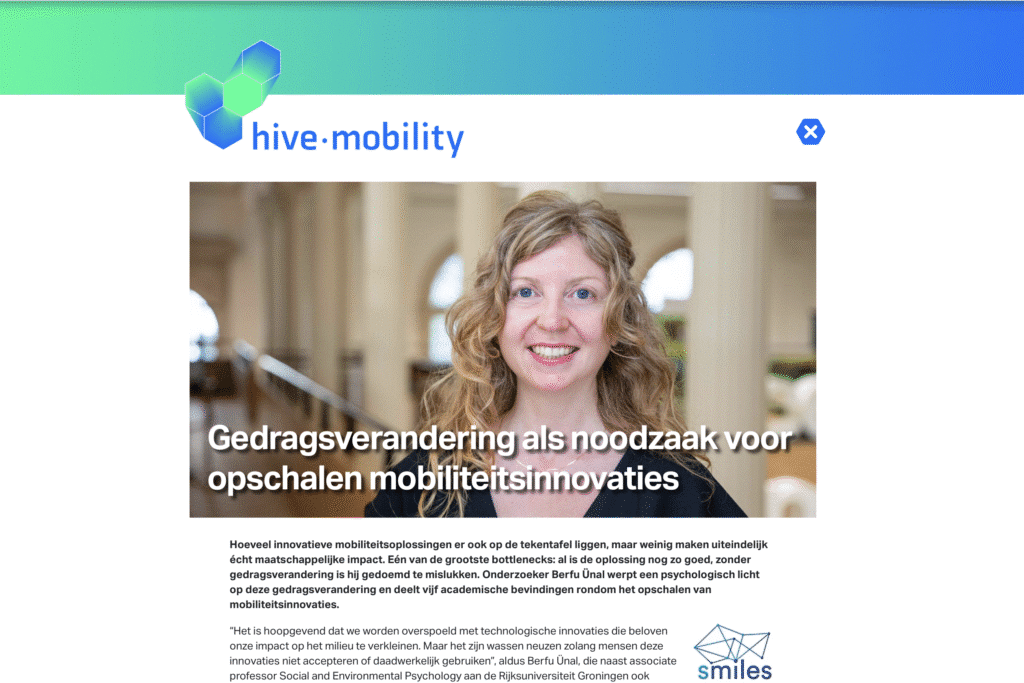
Behavioural change is necessary for scaling up mobility innovations
"It is encouraging that we are inundated with so many technological innovations that promise to reduce our impact on the environment. But they are meaningless if people don’t actually accept and ultimately use these innovations."
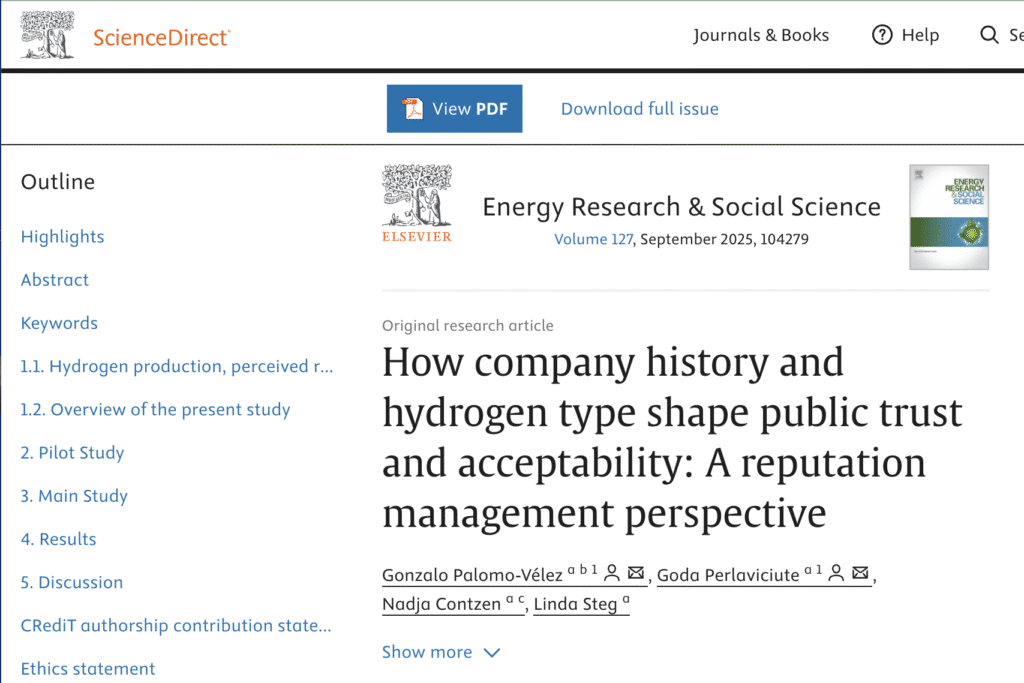
How company history and hydrogen type shape public trust and acceptability: A reputation management perspective
For public acceptability of hydrogen, the company's history was not relevant, with green hydrogen being more acceptable than blue, regardless of which company produced it.

Who we are and what we do
The Environmental Psychology Groningen expertise group investigates how willing people are to make a personal contribution to the cause of combating climate change and which policies can effectively encourage sustainable behaviour.
